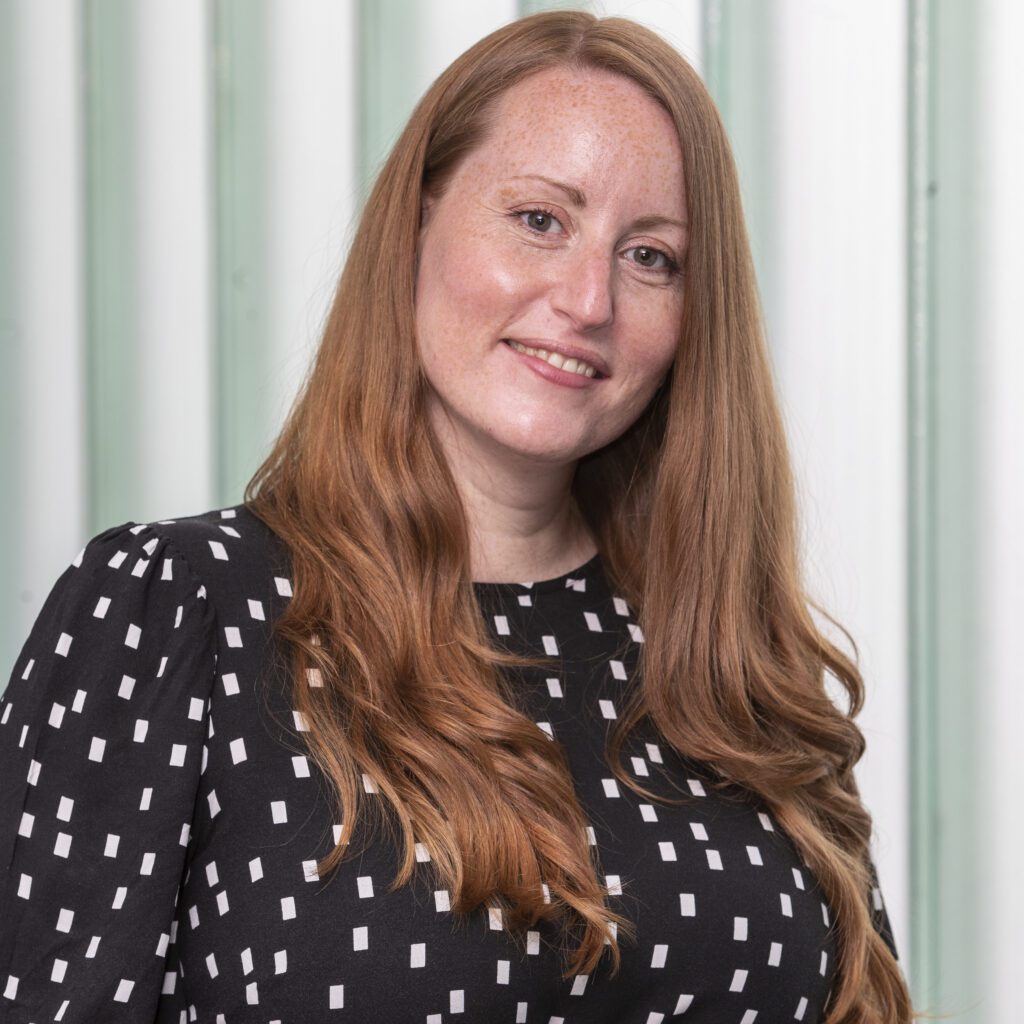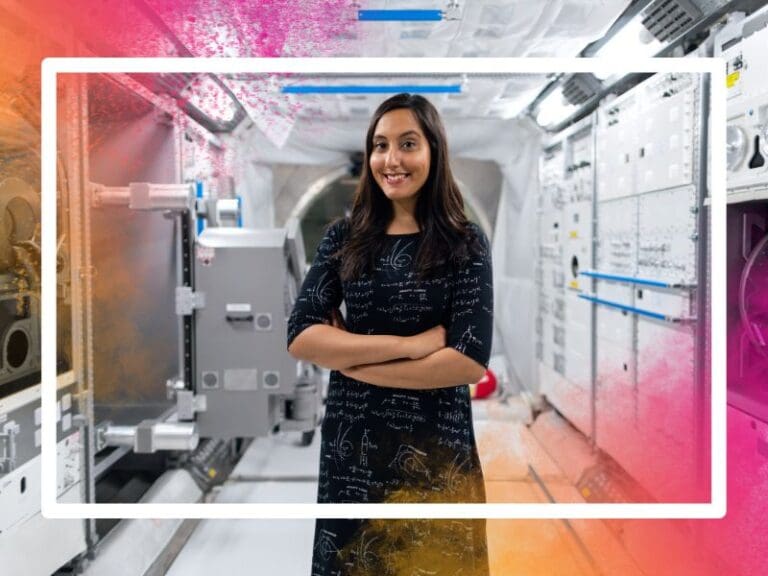Where it all starts

Jen: Throughout my career, I’ve held a variety of roles from retail and hospitality to an electricity distribution company where I developed key skills that now serve me as managing director at DefProc Engineering. While pursuing a textiles degree, I started my own creative practice, alongside teaching and collaborating with students to bring their designs to life, much like the work we do with clients at DefProc today to bring their concepts to reality. During these early years, I expanded my skillset into graphic design, screen printing, laser cutting, and CAD, all of which unexpectedly shaped my current role.

Enola: I have a BA and MA in English Literature. Unsure of my career path, I completed online courses during my MA to see what I enjoyed, including one in digital marketing, which sparked my interest in the field. Although I had no formal experience, I had started an Instagram food blog during lockdown, which helped me initially secure a six-month role at DefProc Engineering as its digital marketing content creator and I progressed from there.
What are the challenges
Jen: Transitioning into a STEM career without a formal background posed several challenges, particularly when I had to quickly grasp technical processes like PCB (printed circuit board) design. To manage a PCB project, I needed to understand the steps involved and integrate them into a cohesive delivery plan, which required a deep dive into the technology. I spent time with Patrick and the team, just watching what they do, asking detailed questions about the processes — why they’re doing it a certain way, and what impact that has. This ensured I could effectively coordinate the project.
It was also essential to recognise and assess client technologies, such as understanding the development stages (e.g. moving from TRL 2 to TRL 5) to accelerate the innovation process. It’s a very complex framework to navigate and this is where experience is beneficial. However, as a person without an engineering background, I built this knowledge by delivering projects at different stages and noting the similarities and differences between each stage.
These challenges compelled me to quickly expand my knowledge while driving me to efficiently manage and deliver successful projects for clients.
Enola: Coming from a non-STEM background, I nearly didn’t apply for the role due to my lack of experience and uncertainty about working in engineering. Even after reviewing DefProc’s website, I wasn’t sure I was the right fit. However, I soon realised that my lack of engineering knowledge was actually an asset. I had been hired to approach complex technologies from a non-technical perspective, enabling me to effectively communicate with an audience who are unfamiliar with technical engineering terminology and concepts. This shift in perspective boosted my confidence and contributed to my success in the role.
Overcoming obstacles
Jen: One way I overcame obstacles and leveraged my non-STEM skills was by hosting a workshop with Liverpool Girl Geeks. Eager to learn more about coding and sensors, I researched and used an Adafruit Circuit Playground. In the workshop, I was then able to teach coding to 11-14-year-old girls. I emphasised the creativity behind coding, showing how it can create interesting, functional outcomes rather than just abstract results on a screen. Teaching these concepts not only made them more accessible to girls but also helped me solidify my own knowledge while empowering the next generation.
Enola: I overcame obstacles in my STEM career by embracing curiosity and asking questions. I also applied the analytical and communication skills developed during my degrees, where I spent years explaining complex arguments and applying them to my own ideas. Similarly, in engineering, I work with intricate technologies, breaking them down into easy-to-understand language and concepts, to make them accessible to others. This ability to simplify and communicate complex concepts has been crucial in bridging the gap between technical details and broader understanding.
Successes and achievements
Jen: One achievement I often reflect on is my role in the Liverpool 5G Health and Social Care Testbed, a central government-funded 5G project. As DefProc’s representative, I explained the project’s technological progress to government advisors, compiled reports, analysed user feedback, facilitated user groups, and answered any questions they had about the project. I also set up trials and educated third-sector organisations on implementing the technology, demonstrating its benefits and supporting their service delivery to users. Taking on this large-scale project, involving collaboration with local authorities, hospitals, and tech companies, was a career milestone that taught me invaluable lessons that have influenced my work and continue to shape my approach as a managing director.
Enola: My greatest achievement is being the first person in my family to attend university and having the autonomy to shape my own career path and my future. Initially, I hesitated about going to university, as I felt I didn’t have the knowledge required to even attempt an english literature degree, so I considered a more practical apprenticeship instead. However, with my mother’s encouragement, I pursued higher education. This decision boosted my confidence, developed my skills, and showed that I can do anything I put my mind to – and I am proud to be where I am today because of it.
Reflections as a Woman in STEM
Jen: As a managing director with over ten years of experience, I’ve found that skills transfer easily across multiple sectors. As long as you can communicate effectively to update on project progress, deliverables and milestones to all stakeholders, it doesn’t matter if it’s in STEM, retail or other.
Enola: My journey into STEM has shown me that diversity strengthens a company. Bringing together people with varied backgrounds accelerates innovation, especially in tech-for-good projects where diverse perspectives enhance understanding of user interactions. It’s also vital to work for a company that values diversity and supports your professional growth as a woman.
Advice for others
Jen: If you’re transitioning into a new industry, begin with something that excites you. For me, the key motivator is contributing to impactful projects within a larger ecosystem – involving myself in projects that will improve people’s lives. This means understanding the bigger picture and what needs to scale for long-term success. By taking the initiative and asking questions and fully immersing yourself in the industry, you’ll quickly see how your existing skills can drive technological progress and shape new processes and systems.
Enola: For those without a STEM background, there are many opportunities in technology and innovation, including roles in marketing, finance, HR and business support. STEM isn’t just for engineers; it’s a diverse field that values a range of skills. Smaller companies, in particular, often offer chances to expand your skill set. I have learned so much over the last few years, from 3D printing to soldering a PCB, you can gain hands-on experience in areas you might not expect.







